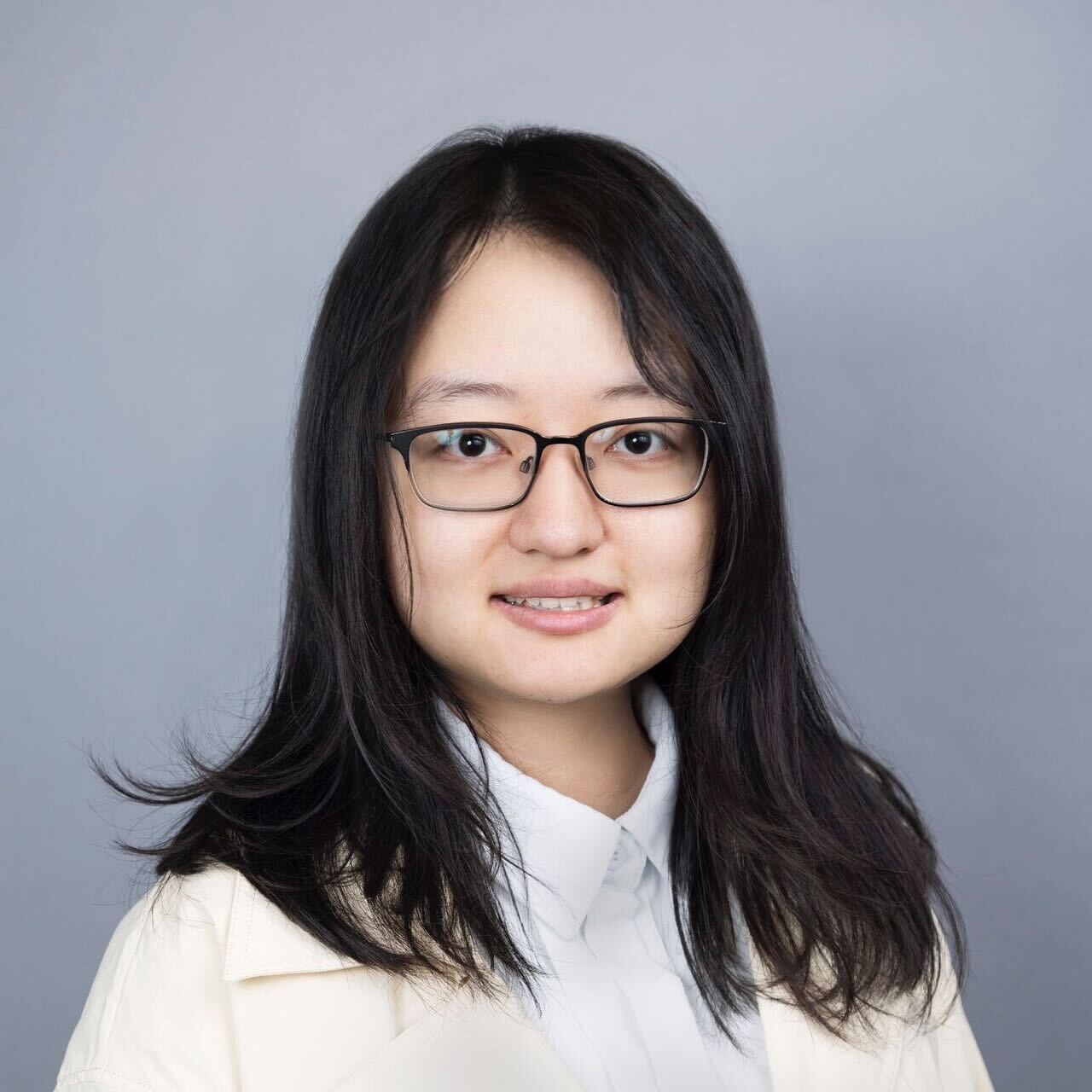Invited Session 5: Emerging Frontiers of Cancer Research
1:15 PM - 3:00 PM, May 17, 2025; Chem-H Rotunda E241
Chair: Lu Tian
Speakers: Krishna Padmanabhan, Li Zhang, Ruishan Liu, Wanwen Zeng, Poster winners.
Chair: Lu Tian, Stanford
 Lu Tian is Professor of the Department of Biomedical Data Science at Stanford University. He received his Doctor of Science degree in Biostatistics from Harvard University. Dr. Tian has rich experience in statistical methodological research, and study design for randomized clinical trials. He has published more than 300 research papers in both statistical and clinical journals. He is an elected Fellow of American Statistical Association. His current research interest is in developing statistical methods in precision medicine, meta-analysis, randomized clinical trial, and survival analysis.
Lu Tian is Professor of the Department of Biomedical Data Science at Stanford University. He received his Doctor of Science degree in Biostatistics from Harvard University. Dr. Tian has rich experience in statistical methodological research, and study design for randomized clinical trials. He has published more than 300 research papers in both statistical and clinical journals. He is an elected Fellow of American Statistical Association. His current research interest is in developing statistical methods in precision medicine, meta-analysis, randomized clinical trial, and survival analysis.
BACTA-GPT: An AI-Based Bayesian Adaptive Clinical Trial Architect
Speaker: Krishna Padmanabhan, Vice President, Cytel
 Krishna is a Vice President in the Innovative Statistics group at Cytel. He brings nearly 20 years of experience as a statistician and drug developer in the pharmaceutical industry, with a background that includes roles at Wyeth and Pfizer prior to Cytel. His expertise spans end-to-end drug development across a variety of therapeutic areas, with a specialty in innovative trial design - with extensive experience in Oncology clinical trials. He also serves as an adjunct faculty member at the University of Pennsylvania.
Krishna is a Vice President in the Innovative Statistics group at Cytel. He brings nearly 20 years of experience as a statistician and drug developer in the pharmaceutical industry, with a background that includes roles at Wyeth and Pfizer prior to Cytel. His expertise spans end-to-end drug development across a variety of therapeutic areas, with a specialty in innovative trial design - with extensive experience in Oncology clinical trials. He also serves as an adjunct faculty member at the University of Pennsylvania.
Abstract
Bayesian adaptive clinical trials offer flexibility and efficiency but are often limited by complex computations and the need for advanced statistical programming. Large Language Models (LLMs) have shown promise in automating such tasks. We introduce BACTA-GPT, a custom fine-tuned LLM designed to assist with Bayesian Adaptive Clinical Trials in R. BACTA-GPT translates natural language instructions into executable R code, reducing technical barriers and streamlining trial implementation. In this talk, we present the motivation behind BACTA-GPT, describe its capabilities and fine-tuning process, and share effective prompting strategies. We also evaluate its performance in supporting adaptive trial simulations, highlighting its potential to improve accessibility and efficiency in clinical research.
AI-Driven Insights from Clinico-Genomics Data for Precision Oncology
Speaker: Ruishan Liu, PhD, USC
 Ruishan Liu is an Assistant Professor of Computer Science at USC. She received her PhD in Electrical Engineering at Stanford University in 2022 and was a Postdoctoral Fellow in Biomedical Data Science at Stanford University from 2022 to 2023. Her research lies in AI for healthcare and biomedicine. She was selected as the Rising Star in Data Science, the Next Generation in Biomedicine, and the Rising Star in Engineering in Health. She led the project Trial Pathfinder - AI for clinical trials design, which was selected as Top Ten Clinical Research Achievement in 2022 and Finalist for Global Pharma Award in 2021.
Ruishan Liu is an Assistant Professor of Computer Science at USC. She received her PhD in Electrical Engineering at Stanford University in 2022 and was a Postdoctoral Fellow in Biomedical Data Science at Stanford University from 2022 to 2023. Her research lies in AI for healthcare and biomedicine. She was selected as the Rising Star in Data Science, the Next Generation in Biomedicine, and the Rising Star in Engineering in Health. She led the project Trial Pathfinder - AI for clinical trials design, which was selected as Top Ten Clinical Research Achievement in 2022 and Finalist for Global Pharma Award in 2021.
Abstract
Understanding how genetic alterations influence treatment response is key to advancing precision oncology. In this talk, I will discuss our large-scale analysis of 78,287 cancer patients, integrating somatic mutation data with real-world treatment outcomes (Liu et al. Nature Communications 2024). First, I will highlight 776 identified mutation-treatment interactions across 20 cancer types, uncovering key genomic biomarkers that predict responses to immunotherapies, chemotherapies, and targeted therapies. Second, I will present our pathway-treatment interaction analysis, showing how broader signaling pathways influence treatment efficacy. Finally, I will introduce our machine learning-based risk score for predicting immunotherapy response in advanced non-small cell lung cancer. This work demonstrates the power of large-scale clinico-genomics data and AI in guiding personalized cancer therapy.
Network Analysis and Deep Learning of Adaptive Immune Sequences in Cancer Subjects Receiving COVID Vaccination
Speaker: Dr. Li Zhang, Professor, UCSF
Dr. Li Zhang is a Professor of Department Medicine and Department of Epidemiology and Biostatistics at University of California San Francisco (UCSF) and a member and principal statistician of UCSF Helen Diller Family Comprehensive Cancer Center (HDFCCC). She obtained her Ph.D. in Statistics from University of Florida in 2006. Dr. Zhang has almost twenty years of experience in applying statistical method in biomedical research. Her statistical methodological research interests are cancer epidemiology and immunoinformatics. She received multiple research rewards as a principal investigator (PI) and co-Investigator (Co-I) from NIH, DoD and other foundation grants. She has about 200 peer-reviewed publications. She has served on American Society of Clinical Oncology (ASCO) Career Development Award and Young Investigator Review Committee as a statistical reviewer and NIH/NCI Study Sections. She is also the Council of representative of ASA Statistical Consulting Section.
Abstract
Characterization of adaptive immune sequences is critical for understanding the adaptive immune system and developing treatments for cancer, infectious diseases, and autoimmune conditions. The COVID-19 pandemic presented the opportunity to capture longitudinal adaptive immune sequence data in the context of controlled (vaccination) and variable (cancer) immune responses to field test the value of adaptive immune sequences as a biomarker for general and specific immune responses. This study aims to identify TCR-based immune signatures linked to cancer, SARS-CoV-2 infection and vaccination, and demographic factors by utilizing the TCR-sequence data from the cancer cohort of the SeroNet study, which were treated at Cedars-Sinai Medical Center. We constructed TCR networks, identified the clonal expansion of public TCR clusters over time, and found candidate vaccine-associated TCR clusters by using the NAIR R package. Furthermore, we explored TCR-antigen peptide recognition using our PepTCR-Net framework. We found that cancer patients exhibit different T-cell phenotypes and specificity to COVID-19 vaccination, and cancer treatments influence this T-cell response and TCR repertoire. These findings underscore the clinical potential of TCR repertoire analysis in monitoring immune responses to vaccines and stratifying subjects based on immune profiles. Identifying TCR-peptide interactions relevant to disease and therapy paves the way for personalized medicine and improved treatment strategies for cancer and viral infections.
Leveraging Large Language Models for Personalized Gene Expression Modeling with Whole-Genome Sequencing Data
Speaker: Dr. Wanwen Zeng, Stanford University
 Dr. Wanwen Zeng is a postdoctoral fellow in the Department of Statistics at Stanford University, working at the intersection of deep learning, genomics, and genetics. She develops deep learning frameworks and genetic large language models to decode cis-regulatory elements, predict personal gene expression, and improve polygenic risk prediction from whole-genome sequencing data. Her work has been published in Nature Communications, Nature Machine Intelligence, PNAS, Nucleic Acids Research, and other leading journals.
Dr. Wanwen Zeng is a postdoctoral fellow in the Department of Statistics at Stanford University, working at the intersection of deep learning, genomics, and genetics. She develops deep learning frameworks and genetic large language models to decode cis-regulatory elements, predict personal gene expression, and improve polygenic risk prediction from whole-genome sequencing data. Her work has been published in Nature Communications, Nature Machine Intelligence, PNAS, Nucleic Acids Research, and other leading journals.
Abstract
This talk introduces a new method for advancing personalized gene expression modeling by leveraging whole-genome sequencing (WGS) data. We present a new genetic large language model (LLM) specifically designed to predict individual-level gene expression profiles. By employing a pretraining and fine-tuning strategy, the model captures complex, individual-specific gene regulatory patterns, even when trained on a relatively small number of samples. This genetic LLM not only improves prediction accuracy but also enhances interpretability, offering deeper insights into how genetic variation shapes personal gene regulation and contributes to phenotypic diversity. Our approach highlights the potential of LLMs to bridge the gap between genomic variation and individual expression landscapes, with important implications for precision medicine and disease risk assessment.